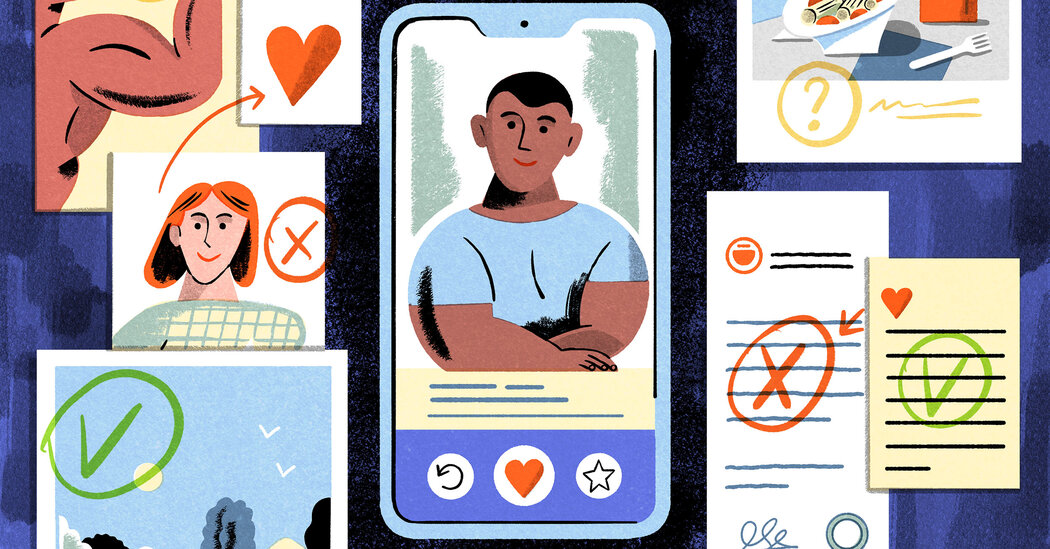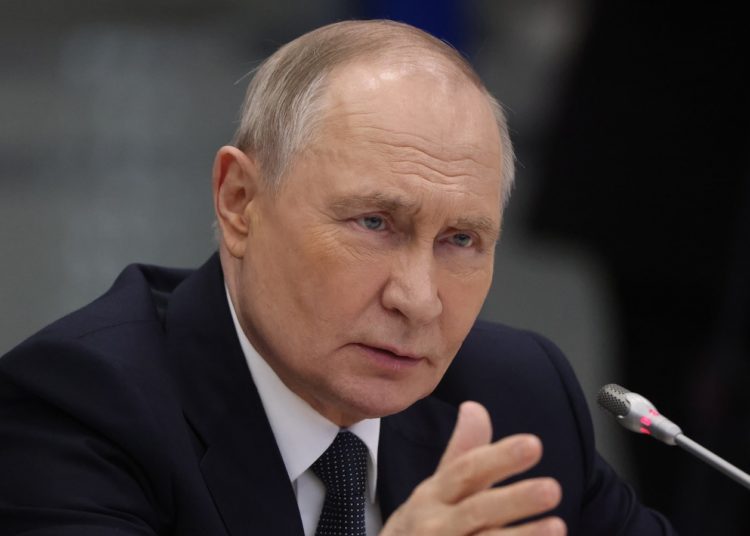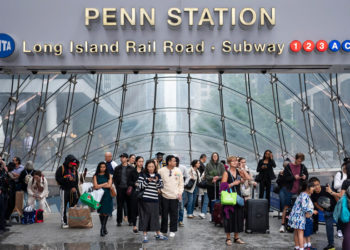When it comes to online dating, Erin Derby has a system.
Before Ms. Derby, 49, agrees to meet up with a match, she typically spends a week or two texting back and forth to get a feel for how they communicate — gauging their sense of humor, and “whether they use full sentences with periods at the end.”
She does a bit of sleuthing, too: a close read of their dating profile, some preliminary Googling.
Ms. Derby, a photographer and content creator, also asks her matches big questions up front, like who they voted for in the last election and what their religious beliefs are. And if a potential date finds her vetting process invasive or arduous, so be it. When a conversation peters out, that tells her what she needs to know.
“You’re putting together the puzzle of who this other person is,” she said.
For many singles like Ms. Derby, screening matches is an essential part of modern dating, offering some semblance of control in a process that can feel overwhelming and risky. According to a 2023 Pew survey, less than half of online daters in the United States believe the apps are generally safe (women are more likely than men to think they’re unsafe) and more than half say they’ve come across someone who they think has tried to scam them.
Vetting dates isn’t just about safety; it’s also about emotional self-preservation, said Shira Danzig, a clinical psychologist and co-founder of the River Psychology Group in New York, which offers dating therapy.
Many of the clients she sees have become risk averse, wary of putting their hearts or safety on the line.
“They’re very concerned about putting themselves out there, of being vulnerable, of the experience of dating — which mostly feels bad,” she said. “The extreme amount of data we can collect on a person beforehand makes us think that we can protect ourselves from getting hurt.”
Putting FaceTime Before Face Time
Many singles have their vetting tactics down pat: reverse image searches, background checks, pointed “getting to know you” questions. One TikToker advises asking matches to share the most romantic thing they’ve ever done for a partner.
While getting those answers before meeting someone might feel comforting, some experts warn against spending too much time texting — particularly now that some daters are using artificial intelligence to communicate with matches, a practice known as “chatfishing.”
“Modern dating really challenges us because of the volume and the scale and the speed,” said Grace Lee, a dating coach in New York City. “You’re spending time, money and, really, emotional energy.”
So she tells clients to ask themselves several questions when they are in the texting phase: Is this a real person? Do I like talking to them? Do they like talking to me?
“Once you can answer those questions, and not a minute before, you put something out there like, ‘Hey, let’s continue this conversation in person,’” she said.
Sabrina Zohar, a dating coach who hosts a podcast about relationships, said she is a big fan of a FaceTime or phone call before agreeing to meet someone, to hear their voice and get a sense of their body language.
At the end of some conversations, she’s thought: “Thank god I didn’t go out with this person. What a dud!” said Ms. Zohar, who is now in a relationship. But she has also found herself on a call thinking: “Wow, he’s so much cooler on the phone. He just doesn’t like to text.”
Still, hopping on the phone with a stranger can be awkward in its own way. Melissa Gallagher, 30, has been on about 50 first dates in the past few years — and only one person asked her to FaceTime beforehand. It felt like a job interview, she said.
“It was so unsubstantial,” Ms. Gallagher said. “I was like: Why do we have to do this?”
Recently, she used the Tea app, which was designed to help women vet their dates (and has been plagued by data breaches), to see whether any of her past matches had been flagged as toxic. The FaceTime guy was the only match who popped up.
The Coffee Date Conundrum
Sometimes screening happens IRL.
In recent months, the coffee date has emerged as a controversial topic on TikTok, where scores of videos feature people arguing that they are either the perfect low-lift screening option or a giant red flag signaling someone is cheap or unwilling to put effort into a “real” first date.
Gabe Escobar, 23, an actor and influencer, has always been pro-coffee date. “It doesn’t make sense to me to agree to go to dinner with someone — to commit to an hour or two of very intense one-on-one conversation — if you don’t know them at all.”
He met his girlfriend of eight months the new old-fashioned way: She slid into his DMs and they texted for a few weeks before meeting for coffee. That spilled over into a long, proper dinner date because they were having such a good time.
“It worked out well,” Mr. Escobar said. “So I personally think my theory makes sense.”
Catherine Pearson is a Times reporter who writes about families and relationships.
The post Can You Pass Your Date’s Background Check? appeared first on New York Times.




